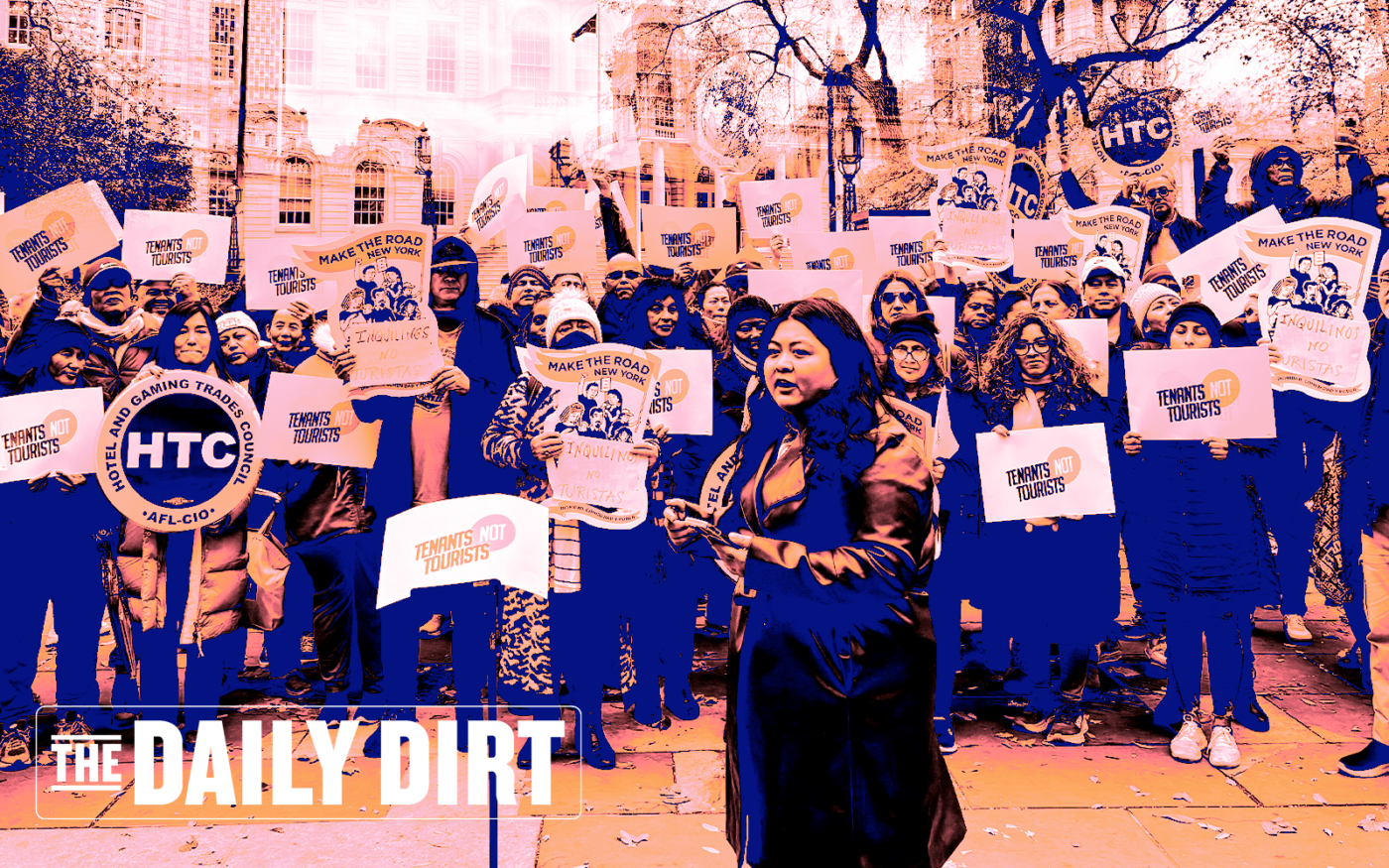The fight between the city’s hotel union and Airbnb is ramping up again.
The latest chapter in their acrimonious relationship involves a City Council bill that would create carveouts in Local Law 18 to allow more short-term rentals in single- and two-family homes.
For those who need reminding: Local Law 18, adopted by the Council two years ago, requires hosts using Airbnb and other homesharing sites to register their short-term rentals with the city. It also created a list of buildings where owners forbid tenants to sublet their apartments.
Those hosts must also be present when renting out their units for fewer than 30 days.
But last month, Council member Farah Louis introduced a bill that would allow registered owners of one- and two-family homes to get around the requirement to be present while hosting short-term guests. The measure would also allow such hosts to have up to four guests instead of two.
Airbnb says the measure provides “common sense and marginal updates” to “an overly restrictive short-term rental law.” Meanwhile, a group backed by the Hotel Trades and Gaming Council argues that the bill would undo the progress made by Local Law 18 and cede homes to tourists just as the City Council is trying to address the city’s housing crisis.
The fight boils down to market share. Before Local Law 18, the difficulty in enforcing New York’s short-term rental laws posed a real threat to the city’s hotels. After the measure went live in September 2023, listings on Airbnb plummeted 90 percent, according to a November report commissioned by Airbnb. It is easy to see why the hotel union isn’t keen on creating exceptions to the law.
What we’re thinking about: A number of mayoral contenders have vowed to freeze rents if they win in 2025. You might recall that then-Mayor Bill de Blasio called on the Rent Guidelines Board to freeze rents in the pandemic year of 2020, and that rents were frozen three times during his tenure. Some criticized his interference in a process that is supposed to be based on an independent board’s analysis and deliberations. Of course, accusations that mayors put their finger on the scale are not new, but if a candidate promises a rent freeze, and the board imposes one, would landlords sue? Send a note to kathryn@therealdeal.com.
A thing we’ve learned: Luigi Mangione, who was arrested for the murder of UnitedHealthcare CEO Brian Thompson, comes from a prominent real estate family in Maryland, my colleague Elizabeth Cryan reports.
Elsewhere in New York…
— The city plans to close 25 migrant shelters, including one at Floyd Bennett Field in Brooklyn, by the end of the month, Gothamist reports. For 22 consecutive weeks, the number of migrants at city shelters has declined, and is now the lowest in a year and a half.
— Manhattan District Attorney Alvin Bragg is urging a judge to put the 34-count conviction of President-elect Donald Trump on hold rather than throw out the case, Politico New York reports. Trump can’t be sentenced while president, and he has asked for the case to be dismissed. In an 81-page legal brief, Bragg urged Justice Juan Merchan to delay sentencing until Trump leaves office in January 2029. “Dismissing an indictment after a trial and guilty verdict because the defendant later wins an election would undermine the public’s perception of fairness in the criminal justice system,” Bragg wrote.
Closing Time
Residential: The priciest residential sale Tuesday was $13 million for a 3,141-square-foot sponsor-sale condominium unit at 500 West 18th Street in Chelsea. Deborah Kern and Steve Gold of the Corcoran Group had the listing.
Commercial: The largest commercial sale of the day was $15.1 million for a 34,395-square-foot, 33-unit apartment building at 109 Gold Street in Vinegar Hill. The Pinnacle Group sold the property to the Mann Group.
New to the Market: The highest price for a residential property hitting the market was $11.8 million for a 2,619-square-foot condominium unit at 520 Fifth Avenue in Midtown. Corcoran Sunshine has the listing. — Matthew Elo
